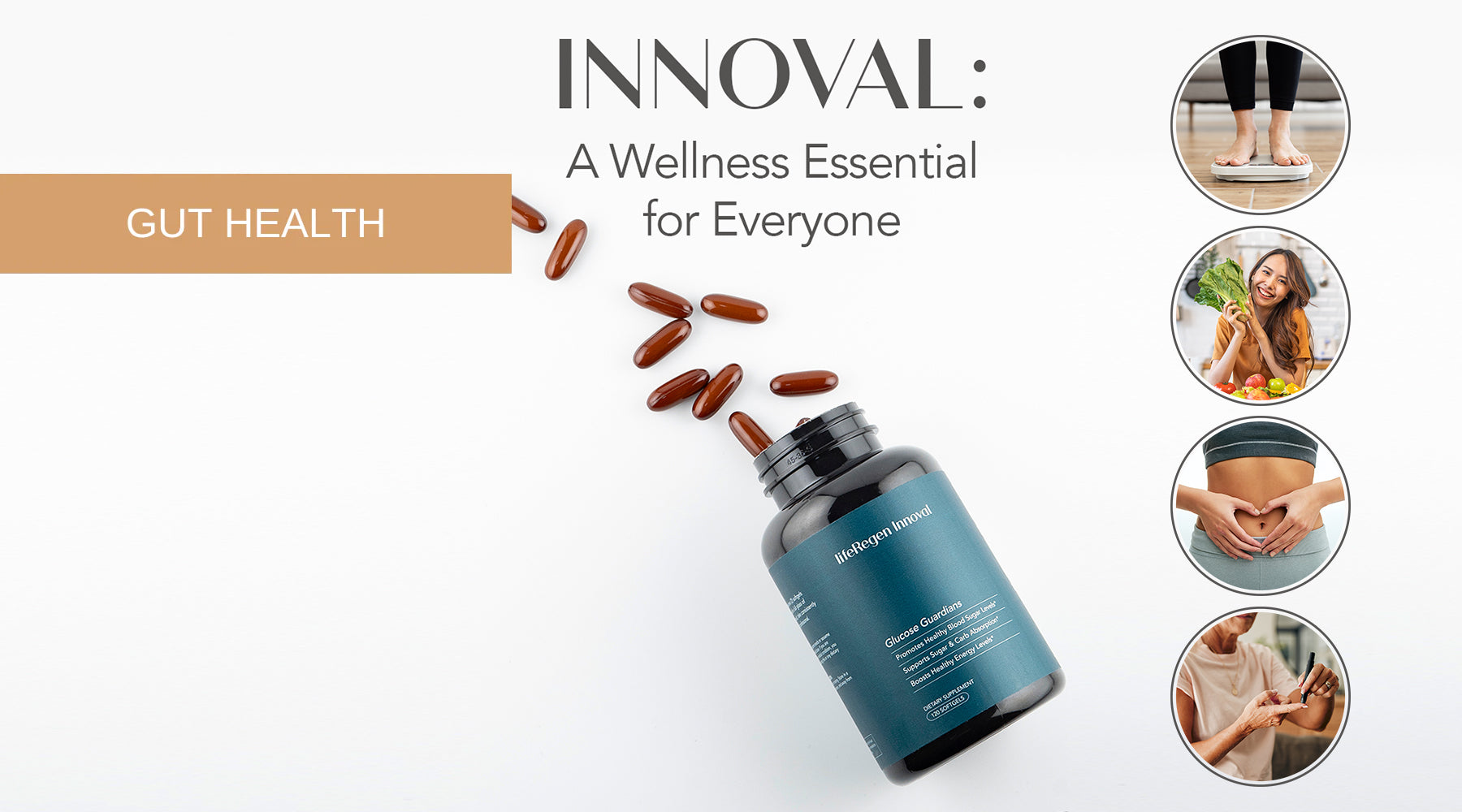The gut plays a vital role in overall health, influencing everything from digestion to immune function and even mental well-being. However, maintaining optimal gut health is often overlooked in our busy lives. In this article, we'll explore the significance of gut health and delve into natural supplements that can help support a healthy digestive system. Whether you're dealing with digestive issues or simply seeking to enhance your well-being, understanding how to nurture your gut is key to achieving optimal health.
What Is Gut Health?
Gut health refers to the overall well-being and function of the gastrointestinal tract, which includes the stomach, intestines, and other digestive organs. It involves the balance of microorganisms, such as bacteria and fungi, that reside in the gut, as well as the integrity of the gut lining and the proper functioning of digestive processes. Optimal gut health is essential for digestion, nutrient absorption, immune function, and overall wellness.
Why Is Gut Health Important?
Gut health is integral to overall well-being, as the gastrointestinal (GI) tract plays a crucial role in various bodily functions. The gut is not merely responsible for digestion; it also communicates directly with the brain through the gut-brain axis, influencing mental health and cognitive function. Additionally, emerging research suggests that gut health impacts several other aspects of health and disease, including immune function, sleep patterns, metabolism, and the development of autoimmune conditions. In essence, the gut is intricately connected to the entire body, and optimal gut function is essential for maintaining overall health and vitality.
Symptoms Of a Gut Health Imbalance
Some symptoms of gastrointestinal (GI) issues are unmistakable, such as cramps, diarrhea, constipation, and heartburn. However, there are other less obvious signs indicating an imbalance in gut health, including bloating, gas, stomach pains, and food sensitivities like gluten or dairy intolerance. Additionally, chronic bad breath, yeast infections, cold sores, urinary tract infections, headaches, migraines, joint aches, compromised immunity, and skin problems like rosacea or acne can also signal underlying gut issues.
These symptoms, ranging from digestive discomfort to systemic health issues, may indicate an imbalance in gut flora or problems with the gut microbiome. They underscore the importance of maintaining a healthy gut through proper diet, lifestyle choices, and possibly supplementation to support digestive health and overall well-being.
How Can You Fix Your Gut Health?
Addressing GI issues requires more than just temporary fixes like over-the-counter medications. These solutions only offer short-term relief for symptoms like heartburn or reflux and fail to target the underlying cause, such as gut flora imbalance. Relying solely on medications like Prilosec or Tums masks the problem instead of addressing it at its root, highlighting the need for a more comprehensive approach to gut health.
Natural remedies play a crucial role in restoring gut health. A diet abundant in fiber, whole grains, and probiotics supports the improvement of intestinal flora and overall gut well-being. Additionally, natural compounds like enzymes can alleviate digestive distress symptoms effectively. Herbal remedies such as ginger, licorice, and chamomile tea offer immediate relief from bloating, gas, and heartburn, particularly after indulgent meals. These holistic approaches provide sustainable solutions for long-term gut health.
Discovering the best natural supplements for gut health is essential for achieving lasting relief from digestive symptoms. By integrating these supplements into your routine, you can address underlying gut issues effectively, leading to improved digestive function and overall well-being.
Supplements For Your Gut Health
Probiotics: Friendly Bacteria
Probiotics are supplements containing live bacteria and yeast that mimic the beneficial microbes in the gut, aiding digestion. They're used to manage specific gastrointestinal issues and promote overall digestive health. Certain probiotic strains may alleviate diarrhea and symptoms of irritable bowel syndrome (IBS). Consider incorporating them into your diet through foods like yogurt or malted milk.
Sesame Seed Oil:
Sesame seed oil contains sesamin and sesamol, compounds known for their antioxidant and anti-inflammatory properties. These properties help reduce oxidative stress and inflammation in the gut, promoting a healthy digestive system. Additionally, sesame seed oil may contribute to maintaining gut integrity and supporting the growth of beneficial gut bacteria.
Beeswax:
Beeswax is rich in various nutrients, including vitamin A, which supports the integrity of the gut lining. By promoting the repair and regeneration of gut tissues, beeswax helps maintain a healthy gut barrier function. This protective barrier prevents harmful substances from entering the bloodstream and supports optimal nutrient absorption.
Skullcap (Scutellaria Baicalensis) Root:
Skullcap root contains bioactive compounds such as baicalin and baicalein, which possess anti-inflammatory and antioxidant properties. These compounds help alleviate inflammation in the gut and protect against oxidative damage, reducing the risk of gastrointestinal disorders. Additionally, skullcap root may support gut microbiota balance by promoting the growth of beneficial bacteria and suppressing harmful pathogens.
Our products feature sesame seed oil, beeswax, and skullcap root, chosen for their soothing and antioxidant properties, benefiting both the skin and the gut.
Psyllium: Fiber for Constipation
Psyllium, found in bulk laxatives, is rich in soluble fiber that absorbs water in the intestines, promoting softer stools and easier bowel movements. It's essential to consume plenty of fluids when using psyllium to prevent dehydration or worsening constipation. Individuals with certain pollen allergies should exercise caution.
Artichoke: Relief of Stomach Upset
Artichoke leaf extract may offer relief from indigestion symptoms like nausea, vomiting, and abdominal pain when used regularly. It may also help manage irritable bowel syndrome (IBS) symptoms and reduce cramps. While generally safe, individuals with ragweed allergies should be mindful of potential allergic reactions.
Prebiotics: Nourishing Gut Bacteria
Prebiotics are indigestible fibers that fuel beneficial bacteria in the gut, promoting their growth and multiplication. Foods like chicory root, dandelion greens, garlic, and onions are rich sources of prebiotics. If dietary intake is insufficient, prebiotic supplements containing inulin or fructooligosaccharides (FOS) can be beneficial in supporting gut health.
Digestive Enzymes: Enhancing Digestion
Digestive enzymes aid in breaking down food in the digestive tract, facilitating nutrient absorption. Some individuals may lack adequate digestive enzyme production, leading to digestive issues like bloating and indigestion. Supplements containing a blend of enzymes such as protease, amylase, lipase, lactase, and cellulase can help improve gut health by aiding in the breakdown of proteins, carbohydrates, fats, lactose, and fiber.
L-Glutamine: Supporting Intestinal Integrity
L-glutamine, an essential amino acid, plays a crucial role in maintaining gut health by fueling the cells lining the digestive tract and strengthening the intestinal barrier. Supplements containing L-glutamine support the growth and repair of the intestinal lining, aiding in the prevention of harmful substances from entering the bloodstream.
Curcumin: Anti-inflammatory Gut Support
Curcumin, derived from turmeric, possesses potent anti-inflammatory properties that can alleviate gut inflammation associated with conditions like inflammatory bowel disease (IBD) and irritable bowel syndrome (IBS). It may benefit individuals with leaky gut syndrome by promoting gut lining repair and restoring the gut microbiome.
Vitamin C: Gut Health Maintenance
Vitamin C acts as an antioxidant, reducing inflammation in the gut and enhancing its barrier function for better nutrient absorption. It helps balance the gut microbiome and supports digestion. Increasing intake of leafy green vegetables can provide both vitamin C and prebiotic fiber for improved gut health.
Chamomile/Ginger: Digestive Comfort
Chamomile and ginger have been traditionally used to soothe the digestive tract, reduce inflammation, and relieve symptoms like nausea. Chamomile's stress-reducing properties can aid digestion, while ginger offers antimicrobial benefits and stimulates digestive enzyme production.
Stevia: Gut-Friendly Sugar Substitute
Stevia not only replaces harmful sugar but also activates bacteriophages in the gut microbiome. These viruses selectively target harmful bacteria, promoting a healthier balance of gut flora and reducing the risk of digestive issues.
Licorice and Oregano: Herbal Support for Gut Health
Licorice and oregano are herbs known for their digestive benefits. Licorice aids digestion and may help activate bacteriophages, while oregano offers antimicrobial properties, protecting the gut from harmful microorganisms.
Apple Cider Vinegar: Gut Support Potential
Apple cider vinegar (ACV) is derived from fermented apple juice and contains pectin, recognized as a prebiotic, fostering the growth of beneficial gut bacteria. Unpasteurized ACV, often labeled "with the mother," may harbor probiotic bacteria, further enhancing gut microbiome health.
Achieving optimal gut health is essential for overall well-being. By incorporating natural supplements into your routine, you can address underlying gut issues effectively. From probiotics to digestive enzymes and herbal remedies, there are numerous options to support digestive health. Consult with a healthcare professional to determine the best approach for your individual needs and experience the benefits of a healthier gut today.
References
- Gut Health. Better Health Channel. Accessed 02/26/2024.
- The Gut Microbiome and Health. Colorado State University Extension. Accessed 02/26/2024.
- The Brain-Gut Connection. Johns Hopkins Medicine. Accessed 02/26/2024.
- Your Digestive System: 5 Ways to Support Gut Health. Johns Hopkins Medicine. Accessed 02/26/2024.
- Wang X, Zhang P, Zhang X. Probiotics Regulate Gut Microbiota: An Effective Method to Improve Immunity. Molecules. 2021;26(19):6076.
- Nutrition for Gut Health. University Hospitals. Accessed 02/26/2024.
- Psyllium. Mount Sinai. Accessed 02/26/2024.
- Borrelli, F. International American Academy of Obstetrics and Gynecology, April 2005. Accessed 02/26/2024.
- Bundy, R. Journal of Alternative and Complementary Medicine, 2004. Accessed 02/26/2024.
- Chittumma, P. Journal of the Medical Association of Thailand, January 2007. Accessed 02/26/2024.
- Marakis, G. Phytomedicine, 2002. Accessed 02/26/2024.


